The alarm went off at 8am and my head still hurt, more drugs
required!
 |
| Gollum from Lord of the Rings |
We got dressed and drove straight to Miramar, a section of
the city home to the biggest film industry outside Hollywood. Weta Studios is responsible for 30 years of
film history – the couple who started the business have gone from working on
puppets in their house, to later being involved in all of the Lord of the Rings
trilogy and Hobbit movies, as well as Avatar, Ghost In A Shell and most
recently Blade Runner 2049 amongst many others!! They have recently recreated
the Thunderbirds franchise, retaining the charm by using hand-made models for
all backgrounds whilst the Tracy’s themselves and the Spaceships are created by
CGI and layered on top of the filmed models.
It seems to be doing well globally, they are currently filming season
three. We were booked on two tours. The first one covered various creations they
have done for massive blockbuster films.
There were no cameras allowed in, as the majority of props still belong
to the big movie companies, but we were allowed to take a few pics and here are
some from the gift shop.
 |
| We got to meet one of the artists, here creating futuristic buildings out of flotsam and jetsam..... ah, that's where all the left over Lego goes... |
 |
| Them's hobbitses feet... |
 |
| Scary Auk |
There were many examples of masks and helmets
and lots of information, mostly about the LOTR films and involvement by some
famous actors.
We had a brief break between the two tours which gave us
time for more coffee and to play around outside with the trolls (left). Then we were transferred by bus to the Thunderbirds
studio where we got to see the working sets including Tracy island with the
not-so-technical mechanism to expose the runway… But the detail was
amazing. They’ve even continued a gag
from the original series of hiding as many lemon squeezers into the scenery as
they can get away with! These artists have got one of those jobs I bet they
can’t believe. Playing with models and special effects every day of their
lives.
The tours finished at 1130am. I still felt rough. Simon drove us to what we thought looked like
the southernmost point on the island. Was
that the South Island we could vaguely make out through the cloud?! Not sure...
On to our view point for this city, the Mount Victoria look-out
for panoramic views of Wellington and the harbour.
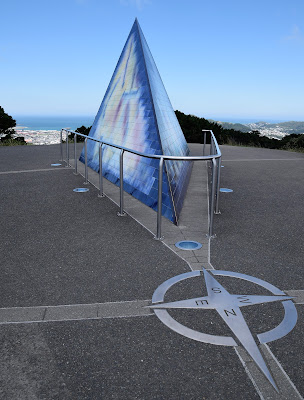 |
| The Byrd Memorial |
At the same time we
discovered the Byrd memorial (right).
If you
travelled in a straight along its axis the next place you would reach would be
Antarctica. The memorial commemorates two of America’s great Antarctic
explorers – Admiral Richard Byrd and Paul Siple. Byrd introduced aircraft to
Antarctica and piloted the first flight across the south pole. He then changed
his focus from heroic exploits to scientific research. Siple introduced
the concept of wind chill to the world and its effects on the human body. Their
work largely laid the foundations for the Antarctic treaty of 1959 which
declared the area south of 60
° south as a region devoted to peace
and science with no territories or borders.
We headed back to our car park from last night. We still had
some time on our ticket and I still needed something greasy to eat to sort me
out, so we created bacon sandwiches from the back of the van on the tarmac!
We then went to the ‘Te Papa’ museum right next
to the car park.
This is a National NZ
museum containing many different halls and themes but we had been especially
recommended to see the 'Gallipoli; The Scale of our War' exhibition by our guide at Weta Studios, as
they had worked on the project.
We had
told ourselves that we could only really afford to spend an hour in the museum
before we should hit the road but how were we to do that when the exhibition
was so incredible and impactive?
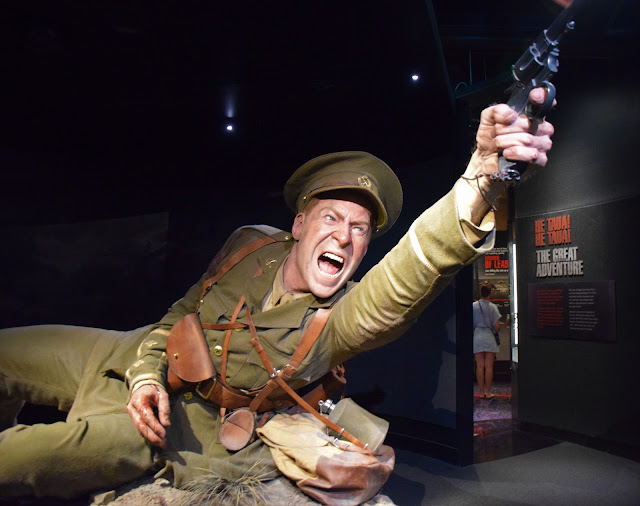 |
| One off the Weta sculptures (with random punter in the background for scale) |
The
huge replicas that Weta had created were
painstakingly made by hand, for example we’d learned
earlier that the facial hairs were placed one at a time into the
silicon skin.
The models were displayed in
individual rooms making them very imposing and each one was a recreation of a real
New Zealander telling the story of their involvement and, more often than not, death in World War I.
It was very moving. Almost 3000 ANZACS were killed
at Gallipoli, but over 4 times more than that died on the western front.
 |
| What an epic journey to join a War - we have been lucky enough to visit Wellington, Hobart and Albany and see the memorials to those brave soldiers |
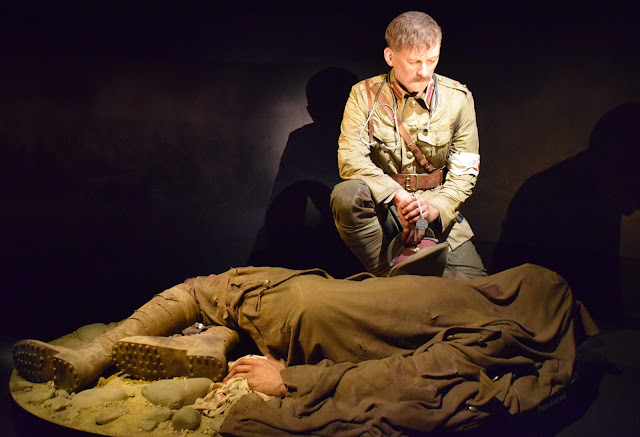 |
| This doctor, Percival Fenwick, survived Gallipoli but was sent home suffering from PTSD after the horror he had experienced |
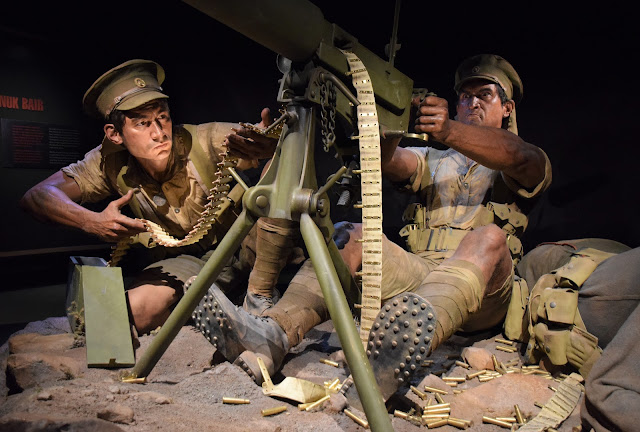 |
| The machine gunners trio |
 |
| Mega-giant squid in the museum |
After we tore ourselves away from the Gallipoli exhibit, we
moved to the Earthquake simulator and some wildlife exhibits before
we really had to go.
We had made full
use of our 24 hours parking, leaving Wellington about 3pm.
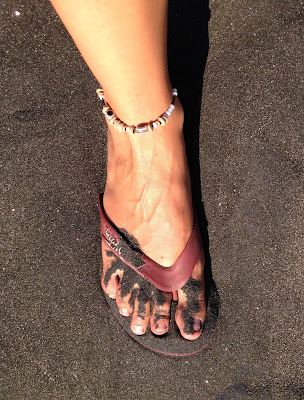 |
| West coast's black but very soft and fine sand |
We drove north for about four hours to reach Patea, on the
west coast. We found another cheap campground and I went for an evening walk
along the river and onto the beach.
Here
on the west coast, the sand is black!
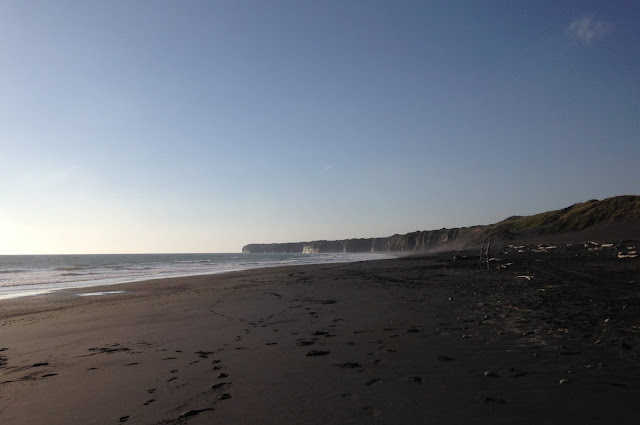 |
| Patea beach |















No comments:
Post a Comment